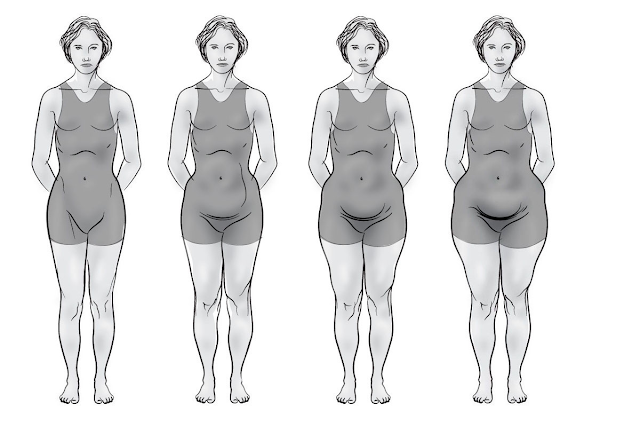Hormones and Weight Gain - The Role of Insulin

From the energy balance equation, researchers derive much of the conventional wisdom about obesity. Raise "calories in" by overeating and lower "calories out" by being inactive, we are told, and the right side of the energy balance equation will get bigger. Hence, we will store more energy in our bodies, presumably as fat. Conversely, lower "calories in" by dieting and raise "calories out" by exercising, and we will presumably get rid of fat.
How Do Hormones and Weight Gain Fit in?
As award winning science writer Gary Taubes has pointed out, most obesity researchers make two critical mistakes when thinking about the energy balance equation:- They assume that "calories in" and "calories out" are independent variables. In other words, you can manipulate one without affecting the other. But this assumption clearly does not work. For instance, when you increase "calories out" by exercising a lot, this makes your body crave additional calories to replenish energy lost. You "work up an appetite."
- They do not allow for the possibility that the fat tissue itself may play a role in energy balance. In other words, we all assume that changes in caloric balance cause changes in energy balance, but it could be the other way around. Changes in energy balance could cause changes in caloric balance. What this means is that some primary hormonal factor could be to blame; overeating and inactivity would then be consequences of obesity as opposed to causes of it.
Getting Rid of Belly Fat - To Do So, You Must Fix the Primary Defect
If excess calories do not make us fat, what does? According to Taubes, we must look at the relationship between hormones and weight gain. It turns out that when our bodies produce too much insulin, this locks excess fat in our fat tissue. Unless you fix this primary problem - over-secretion of insulin - weight loss will ultimately fail, even if you cut calories and exercise more.Simplifying the science a bit, the chain of cause and effect that connects hormones and weight gain appears to be along the lines of the following:
- Overeat sugar and carbohydrates.
- This drives the pancreas to secrete a lot of insulin.
- Insulin pulls blood sugar into the cells of the fat tissue.
- The sugar is burned for fuel.
- A byproduct of this reaction is a molecule called alpha glyercol phosphate.
- Alpha glycerol phosphate drives the fat cells to store more triglycerides than they normally would.
- Repeat over time.
- The result is obesity.
Summary of Relationship Between Energy Balance, Hormones and Weight Gain
Almost all of use were brought up on the idea that calories count more than hormones when it comes to weight regulation. Here is a summary of the key points behind the alternative hypothesis about what causes obesity and how it can be fixed.- Energy Stored = Calories In - Calories Out; we get this idea from the 1st Law of Thermodynamics.
- The Caloric Balance Hypothesis blames obesity on excess calories and reads the equation from right to left: (Energy Stored <= Calories In - Calories Out).
- The other hypothesis (known as Lipophilia) blames obesity on too much insulin and reads the equation from left to right: (Energy Stored => Calories In - Calories Out).
- The hormone insulin plays a crucial role in energy balance in the body.
- Eating too many carbohydrates (and other factors) can make you produce too much insulin.












0 comments: